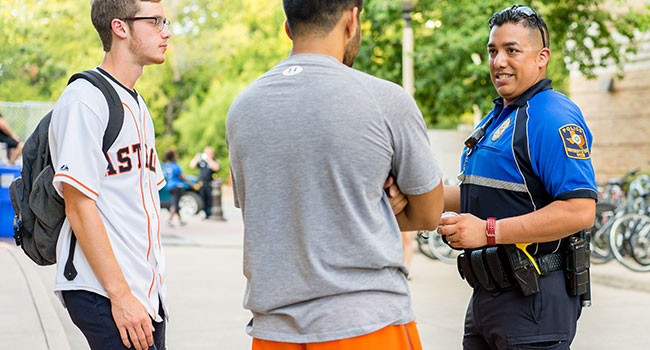
UT Austin Police Department Launches Mental Health Crisis Response Team
- By Matt Jones
- February 11, 2021
The University of Texas at Austin Police Department (UTPD) has recently established a University Crisis Intervention Team (UCIT) tasked with responding to students’ mental health crises. UTPD has said that the majority of calls they receive involve some sort of mental health element. In response, the UCIT launched on Jan. 11 with an initial staff of four officers trained to handle these situations with sensitivity and with as little anxiety or escalation as possible.
“Nowadays, students are very overwhelmed with schoolwork, and they don’t really know where to get help from,” said UTPD officer Frank Pontillo.
According to the UT-Austin student newspaper, The Daily Texan, the UCIT staff are certified mental health officers. They receive specialized training beyond that of other officers and go through courses in de-escalation, crisis negotiation, mental health, and first aid. They wear a blue polo shirt identifying them as UT police officers, and their firearms and handcuffs are kept out of sight.
UTPD states that they received 493 calls with a mental health element in 2019 and 368 such calls in 2020, as of mid-November. They also state that the number of calls continues to grow. The department qualifies calls with a “mental health element” as those that involve police officer emergency detentions (not hospitalizations), disturbances, welfare concerns, voluntary commitments, suspicious activities, suspicious persons, and assaults involving mental health issues.
“Something that we’re also focused on is trying to divert someone from the criminal justice system when appropriate, in getting them that mental health treatment that they might need,” said UTPD Lt. Samantha Stanford. “[The officers are] just going to be talking with them, doing an evaluation to see if they need to be taken to a hospital to talk to a professional or see if there are other resources in the community that they can connect them [with] to help them move forward.”
According to UTPD Police Chief David Carter, one main focus of UCIT is to rebuild trust between students and police. Launching the team is just one effort by one university in response to last summer’s nationwide protests regarding police shootings of Black individuals.
Sources:
https://www.kxan.com/news/local/austin/university-of-texas-police-launch-crisis-intervention-team-for-mental-health-calls/
https://uttsm.wpengine.com/?page_id=309#1
https://www.cmhc.utexas.edu/crisishelp.html